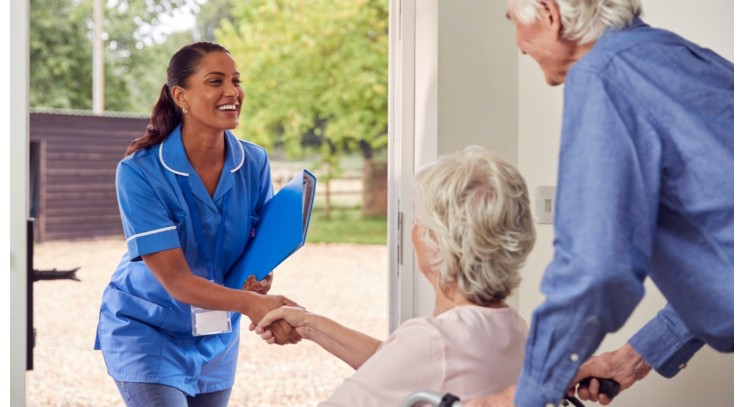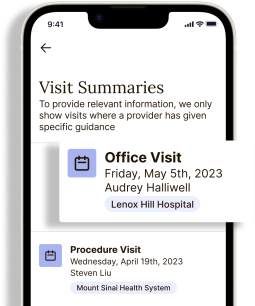Companions, Homemakers, Personal Care Assistants (PCAs), Home Health Aides (HHAs), Certified Nursing Assistants (CNAs)... Often referred to generically as "caregivers." But what do all these terms mean? How are they different? How do you determine what your loved one needs? There is a lot of terminology, but the distinctions are not so difficult.
All caregivers provide services wherever your loved one calls home, and they can help your loved one stay independent in their home, as well as feel more productive and less isolated. If your loved one is living with you, these services can also help relieve some of the responsibilities you have taken on for your loved one.
None of these roles are licensed healthcare professionals. They do not take the place of a nurse, therapist, or social worker.

Companion
Companions or Companion Care
These are individuals, typically hired through a home care agency or arranged through an online service, that keep your loved one engaged and entertained and contribute to their enjoyment. They may provide companionship in the home, or may transport your loved one to community events or other fun and interesting destinations (provided both leaving the home and the intended destination are reasonable and safe).
Companions provide NO housekeeping and NO hands-on personal care. They do not clean, fix meals, or help with tasks such as toileting, bathing, and dressing. They may only provide verbal reminders to your loved one, such as prompting them that it's time to take their medications or go to the bathroom, though they do not assist with these tasks.
Companions are also not intended to serve as sitters, monitoring and intervening for unsafe behaviors, though occasionally there may be downtime where they are just quietly keeping your loved one company while watching a movie, reading, sitting outside, or staying through a nap. Companions are directed on what to do in an emergency and will report to the family anything they observe that seems abnormal.

Homemaking
Homemakers or Homemaking Services
Assistance with Instrumental Activities of Daily Living (IADLs) - "Hands Off"
Homemakers help your loved one manage daily household tasks. They are also typically hired through a home care agency or online service. Homemakers do light housekeeping, laundry, run errands, and prepare meals, and often - as a bonus - keep your loved one company in the process. They differ from a cleaning or maid service that only provides household cleaning (and more extensive cleaning). Supplies such as a vacuum, laundry detergent, and cleaners must be provided by you or your loved one. Homemakers do not bring their own.
Homemakers provide no hands-on personal care. They do not help with tasks such as toileting, bathing, and dressing. They may only provide verbal reminders to your loved one, such as prompting them that it's time to take their medications or go to the bathroom, though they do not assist with these tasks. Homemakers can, however, also serve as a companion and provide companion care.*
Like companions, homemakers are also not intended to serve as sitters, monitoring and intervening for unsafe behaviors, though they often do keep your loved one company with conversation. Homemakers are directed on what to do in an emergency and will report to the family anything they observe that seems abnormal.
*Note that if hired to also provide companion care, hourly fees may be increased to accommodate both types of services (homemaker and companion).

Personal Care
Personal Care Assistants or Home Health Aides
Assistance with Activities of Daily Living (ADLs) - "Hands-On"
Some Home Health Aides (HHAs) may be certified, though not all are and certification is not a requirement to be a HHA. Likewise, some serving in the role of HHA may be Certified Nursing Aides (CNAs) and may identify themselves as CNAs. Many HHAs and CNAs are educated, trained, and skilled in caring for others and can be very helpful with personal care tasks and health maintenance.
Again, it is important to note that certified does not mean licensed. They cannot perform the same tasks as licensed healthcare professionals.
HHAs assist with the following hands-on, personal care tasks:
Bathing/showering/personal hygiene
Ambulation (walking)
Eating (assisting with self-feeding)
Grooming (hair, face, filing nails - not clipping)
Shaving (electric only)
Dressing
Transferring - Moving from one position to another (for example, sitting to standing) or from one surface to another (for example, from bed to wheelchair)
Medication self-administration - while HHAs may not administer medications, they can provide other assistance. Every state is different in what type and how much assistance they can provide. Ensure the HHA reviews with you what they can and cannot do
Specialized care for loved ones with Alzheimer’s or dementia
Home health aides can provide all three types of care - personal care, homemaking services, and companion care.
Cost
The cost of companion, homemaker, and home health aide services depends upon several factors, including the nature and number of services required, the amount of time it will take to provide them, and in which part of the country your loved one lives.
Benefits
Peace of mind. Not all families can provide help, housekeeping, and personal care, particularly if they live far away. Knowing their loved one is receiving the attention and care that's needed can set a family’s mind at ease. Likewise, caregivers can provide relief for those who do live close and regularly provide care.
Familiarity and friendship. Oftentimes, it is the same caregiver that sees your loved one every visit. They become a familiar, dependable presence for your loved one, inspiring caring and trust.
Independence. With routine maintenance of your loved one's physical, mental, and social well-being, they can remain in their home longer. Possibly for the remainder of their lives.
Combined services. Most times, there isn’t a need to hire a home health aide, homemaker, and companion separately. A homemaker can also be a companion, and a home health aide can provide all the services of a homemaker or a companion, in addition to personal care. It’s simply important to understand the differences in services and that there may be increased hourly fees for combined services.
No content in this app, regardless of date, should ever be used as a substitute for direct medical advice from your doctor or other qualified clinician.




